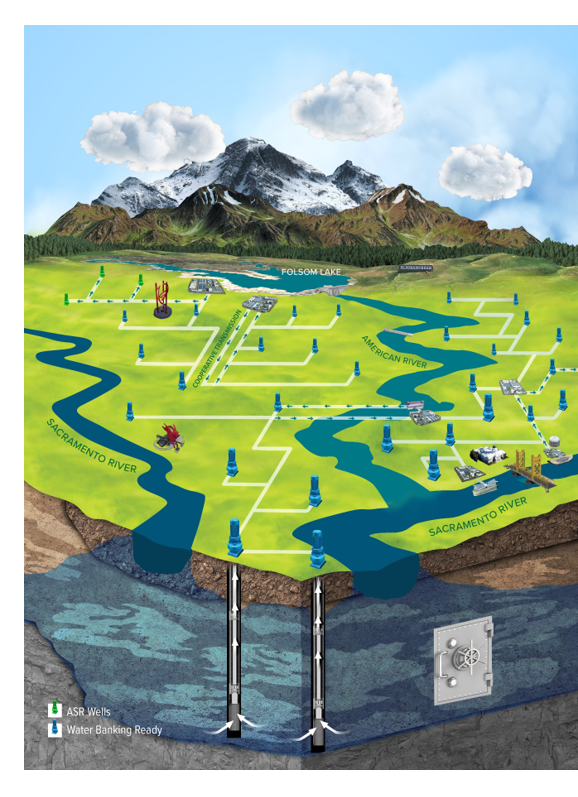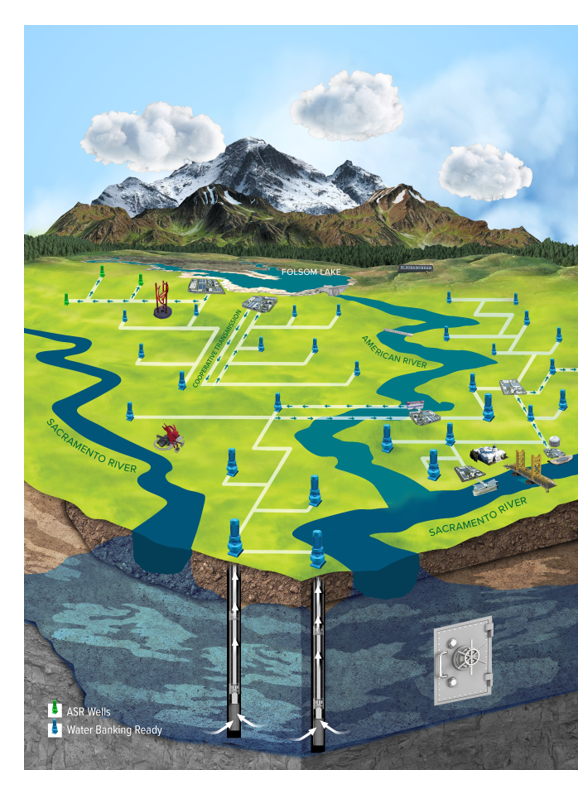By Jim Peifer, Executive Director
With the passage of Proposition 4, the $10 billion Safe Drinking Water, Wildfire Prevention, Drought Preparedness, and Clean Air Bond Act of 2024, California has taken a significant step towards a more sustainable water future for the state and Sacramento region.
Proposition 4 is an investment in the resilience of our water supply and the health of our environment. The bond dedicates $386 million to groundwater management and recharge, and $100 million to watershed resilience, both of which are essential to a reliable water future for the Sacramento region. This marks a significant shift from previous bond measures, transitioning from a population-focused approach to prioritizing the sources of water, and paves the way for future bonds to prioritize funding in the same way. This approach benefits everyone by investing in and addressing the impacts of climate change at the source of our water supplies.
The Regional Water Authority (RWA) was pleased to play a role from the start of the legislative process through its approval in the November election, shaping, advocating for, and helping to secure passage of this critical measure. The RWA team worked closely with our partners at The Nature Conservancy to include groundwater recharge in the bond. Kudos to our Board of Directors for supporting Prop 4 through a resolution that recognized its benefits to the Sacramento region. The RWA team also supported the “Yes on 4” campaign, advocating for RWA member interests in media materials and at a media event with State Senator Angelique Ashby and Sacramento Mayor Darell Steinberg to highlight the bond’s benefits for our community.
These efforts are vital as California faces hotter, drier conditions that threaten to reduce the state’s water supply by up to 10 percent by 2040. By investing in groundwater recharge projects like the Sacramento Regional Water Bank, we can prepare for these challenges by capturing excess water during wet times and storing it for future dry periods. Our local groundwater basins have the capacity to store twice the volume of water as Folsom Reservoir, offering a critical resource for adapting to our changing climate, especially with a shift in precipitation away from snow to rain.
recharge projects like the Sacramento Regional Water Bank, we can prepare for these challenges by capturing excess water during wet times and storing it for future dry periods. Our local groundwater basins have the capacity to store twice the volume of water as Folsom Reservoir, offering a critical resource for adapting to our changing climate, especially with a shift in precipitation away from snow to rain.
Increasing groundwater recharge is necessary because it also benefits our local environment by enabling us to use more groundwater during dry periods, which leaves more water in our surface waterways to support fish and wildlife. According to the Water Forum, which works to balance the coequal objectives of a reliable water supply and environmental stewardship of the Lower American River, increasing reservoir storage by 70,000 acre-feet could lower river temperatures by one degree Fahrenheit in some conditions, a critical factor for fish survival.
Beyond groundwater recharge, Proposition 4 funding addresses urgent issues like wildfire prevention. The Sacramento region relies heavily on the health of our nearby Sierra Nevada forests, which play a crucial role in our water system by filtering runoff and storing water. The 2014 King Fire, which burned 97,000 acres in the Sierra Nevada, underscored the need for proactive measures. Projects funded by Proposition 4 can help prevent similar disasters in the future, reducing wildfire risk, protecting our watersheds, and preserving the forests that provide clean water, protect air quality, and maintain critical ecosystems for our communities.
The Regional Water Authority’s support for Proposition 4 reflects our commitment to a sustainable and secure water future for the Sacramento region and California. As stewards of the headwaters of the state’s water system, we are prepared to leverage this funding to benefit not only our region but California’s water system. Now, let’s build on this momentum to transform Proposition 4’s promise into tangible results.
Jim Peifer is Executive Director of the Regional Water Authority, representing nearly two dozen water providers serving 2.2 million people in the greater Sacramento region. Learn more at rwah2o.org.


